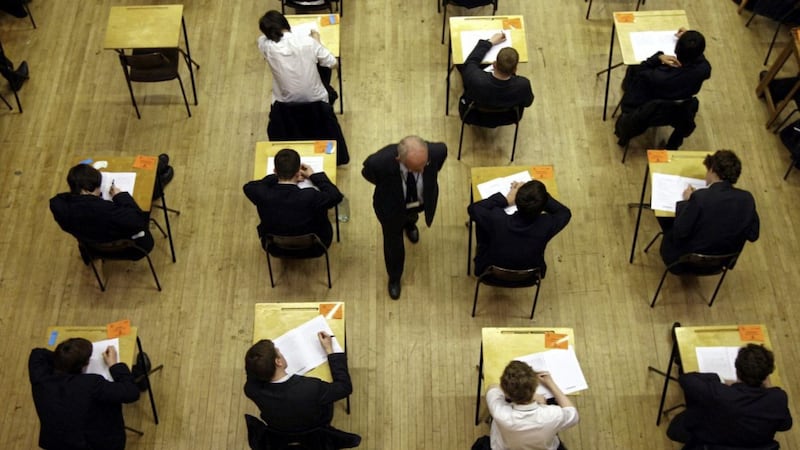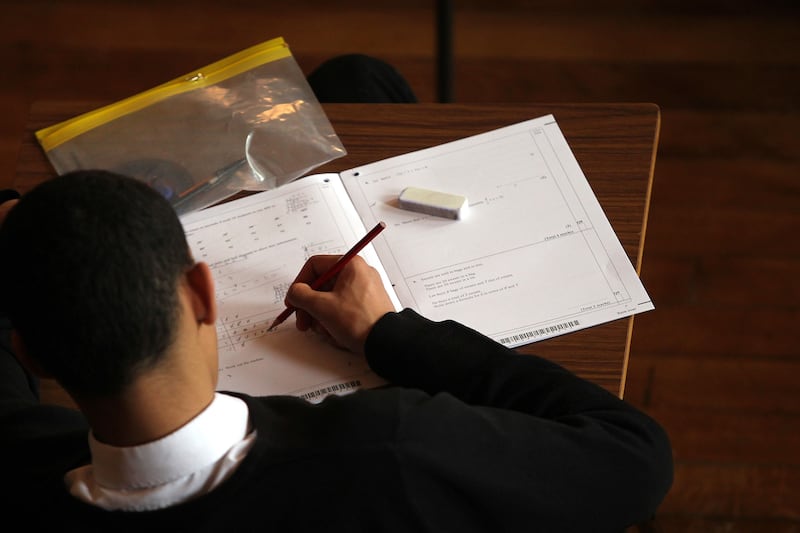Plans for a post-primary transfer test while GCSE and A-level exams are cancelled have been branded "ludicrous".
One of the two private companies which set the transfer tests has indicated it will run one paper on February 27.
However, this afternoon, Strabane Academy - which uses the AQE test to evaluate pupils - wrote to parents of P7 pupils to say they will not facilitate the additional planned test due to ongoing uncertainty.
In its letter to parents, the school said "in these exceptional and unprecedented circumstances, we have taken this decision based on; what we believe is the correct decision for children’s’ welfare".
The Stormont executive is set to discuss the matter during its meeting tomorrow, Health Minister Robin Swann indicated to the assembly.
The Association for Quality Education (AQE) previously announced the cancellation of tests planned to take place in January due to a fresh lockdown.
The Post Primary Transfer Consortium (PPTC) has said it "will not provide an entrance assessment for 2020-21".
As Education Minister Peter Weir announced the cancellation of GCSE and A-level exams in the assembly today, Education Committee chairman Chris Lyttle urged him to act over the transfer test.
"Minister, I respectfully say, you cannot keep washing your hands of this urgent situation," the Alliance representative told MLAs.
"We have the absurdity that children and young people will gain admission to university without an exam and you insist that there will be a possibility to sit tests for 10-year-olds.
"You need to move on, you need to put forward solutions."
Speaking outside the assembly, Justin McCamphill, of NASUWT, also called for action over the transfer test.
"The minister's responsibilities in relation to exams do not end at GCSE and A-level," he said.
"The minister must intervene and end the uncertainty around the transfer test for this year.
"The minister cannot simply wash his hands of the issue on the basis that the tests are 'run by a private organisation'. All schools using the test are publicly funded and very much lie within the remit of the minister.
"Health and safety must come first; deferring the date of the transfer test is simply deferring the difficult decisions that inevitably will have to be made. It is time for the minister to act and stop the transfer test for this year."
Meanwhile, during the assembly debate Mr Lyttle also urged that there be "no repeat of the grading fiasco over which he (Mr Weir) ministered in summer 2020".
Mr Weir said there is more data within secondary schools to generate grades than in primary schools, adding he was "not comparing like with like".
"I want children to have the opportunity to apply and indeed have a fair chance at getting a place at the school that they want and the problem ultimately is there is no clear way in which academic selection can take place without some form of test, and without that all criteria will have a level of unfairness towards one pupil or another," he responded.
"Let us not crystal gaze as to what the position will be in terms of any level of mitigation that can put in place for the end of February.
"These are private organisations that put forward the proposals but anything that is done has got to be in line with public health mitigations."
In terms of GCSE and A-level grading, Mr Weir said his department is working with exams body CCEA on contingency arrangements.
"Those will be produced as soon as they are feasible but it is also the case that we need to make sure that these are got absolutely right," he said.
"I'm committed to ensuring that there will be detailed proposals brought forward within the next couple of weeks to this Assembly, certainly before the end of January. It's more important that we get this right."
Robert Wilson, regional officer of the Association of School and College Leaders (ASCL) Northern Ireland, said it is essential that there is public confidence in the system which replaces exams.
"In the middle of all of this are young people," he said.
"They need grades which reflect their efforts fairly and consistently, and which enable them to progress to the next stage in their lives."








